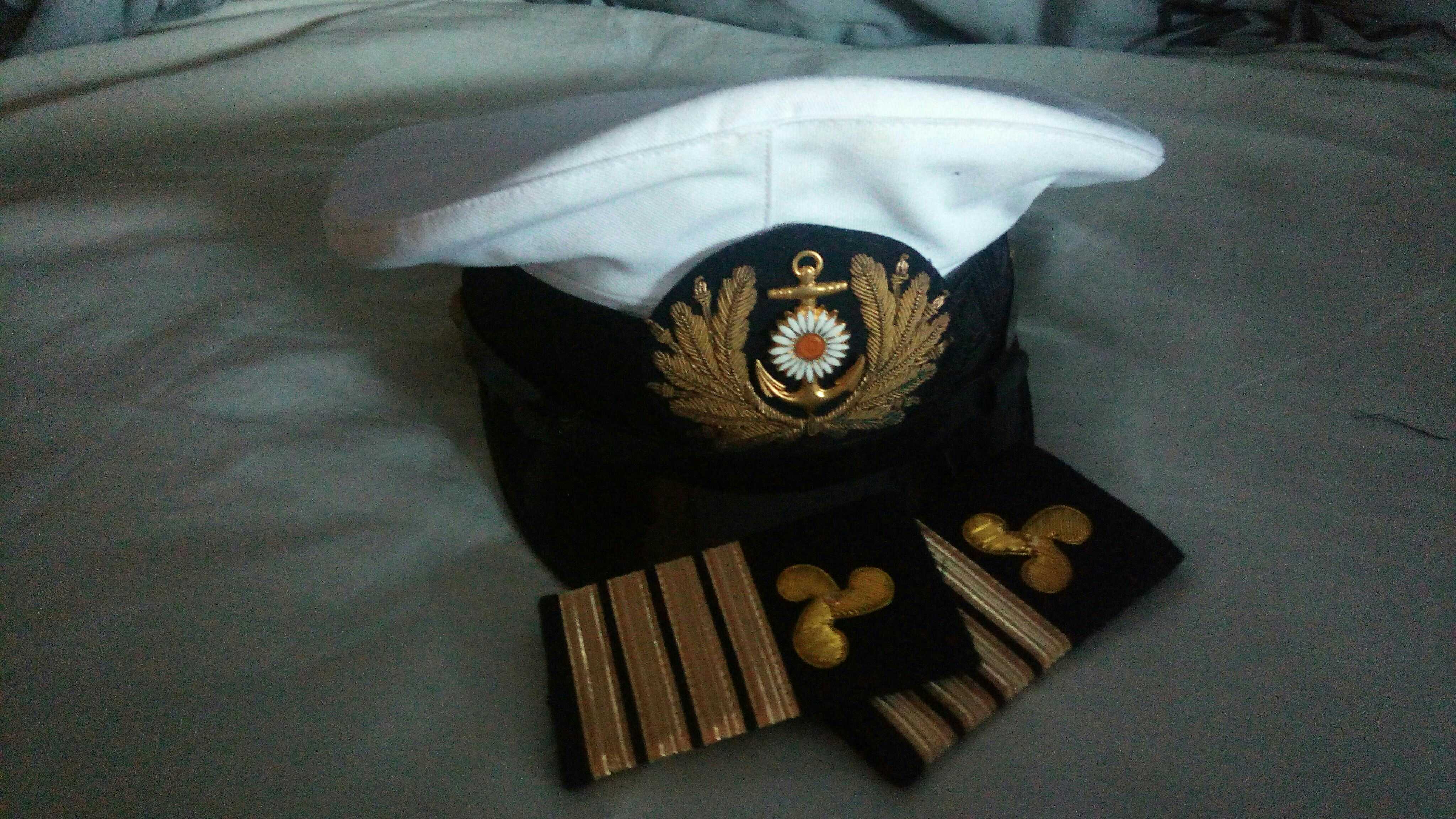Nautical Slang
Channel Fever
The unpleasant nervous feeling sailors experience when they approach their home port. It's often portrait by a restlessness.
Named after the English Channel, and mostly known among Dutch sailors.
Batten down the hatches
Prepare the ship and yourself for bad weather.
Coming from a time when ship's hatches were made watertight with tarpaulins which were secured by wooden slats and wedges. To batten down the hatches was the act of securing and checking all those tarpaulins and wooden components.
On a ship, everything is important, otherwise it wouldn't be there.
On her beams ends
The ship is heeled over so much that the deck beam ends are touching the water. The deck beams are the frames of wood or steel that support the weather deck and run athwartships. At such an angle, the ship is in real danger of going over. Because as soon as the deck goes under water, the stability of a ship reduces. It is also used as an expression to describe a dangerous situation.
Good watch/good rest
A common wish to each other when taking over the watch. The person going off watch wishes the person going on watch, a 'good watch' after which the reply is 'good rest' for their time off.
High and dry
Used as an expression of something or someone who've become beyond hope of recovering.
If a ship beaches 'high and dry' she is left as there is no realistic way of getting her afloat again.
Going around the corner
In passage, if a ship is sailing through narrow or restricting waters, this phrase is given to the point where they are in the open and free to sail. Also, rounding one of the three Capes can be revered to as rounding the corner. Usually it's difficult before the corner and easier after.
In the scuppers
A person is 'in the scuppers'. That's passed out drunk. Scuppers are drain holes in the deck to drain off rain or sea water. A person who had one too many drinks might find themselves there to empty their stomach. And could pass out at such a location.
He left his slippers at the railing
If a person goes missing onboard a full search will be started throughout the ship to locate them, if not, the ship will be turned back on their course to see if they can locate the person who might have gone overboard.
If during such a search a pair of slippers or shoes are found neatly placed by the railing, shoes that are known to have belonged to the missing person. Then this signals that that person has gone overboard by their own choice.
Fair winds and following seas
A common wishing to a ship going out, fair winds so that she may have a swift voyage with enough wind to go along but not enough to be a danger. Following seas are unpleasant to modern motor ships, as it tends to an annoying form of rolling but to sailing ships this is much less a concern and it means the wind is from a favourable direction.
The anchors onboard and the cables are stored
A message from the boatswain to the deck officers that literally the anchors are onboard, heaved home and secured. And that the deck is cleared of mooring lines and all is tidied up and stored away. Finishing off the departure mooring operations and that the deck crew is all free to do the work planned for the sea passage.
Three bells on the telegraph
A phrase from the engine room. When the telegraph rings after departure, this means that the manoeuvring is done, and the ship is underway on the sea passage. The bridge will give the controls of the main engine back to the engine room. The engineers will (if so required) speed up the engine to the maximum power. Due to the size and complexity, this may take up to an hour. (During manoeuvring, the maximum power output may be limited to 70%). Meanwhile, they will fine tune all the pumps, valves and other equipment to run the ship as smooth and efficient as possible.
Three bells signals that no sudden change of engine power is expected, other than in emergencies. And that the ship is well underway. Well before arrival in the next port, the engineers will get a call from the captain informing them of the arrival time so they can turn the engine back down and prepare the engine room for manoeuvring operations.
Engine room is ready to answer all bells
A standard phrase from the era of steam, when engines were controlled by the engineers. This message was given to the bridge when the engine room was ready with preparing the propulsion equipment before sailing, and the boilers were up to temperature and producing steam. ‘All bells’ would refer to the orders given by the bridge (Full Astern, Half Astern, Slow Astern, Dead Slow Astern, Stop, Dead Slow Ahead, Slow Ahead, Half Ahead, Full Ahead). The telegraph used to signal these orders had a bell in them that sounded when a setting was changed or answered.
The tide doesn't wait
In the days of old, ships went out of port with the outflowing tide. (high going low) Leaving port meant that there wouldn't be waited for anyone or anything, because if they missed the tide they had to wait another 12 hours (depending on the location) before they could leave again.
In the modern day, the tide isn't required to pull the ships out of port, but it is important for deep draughted vessels to pass shallow spots. Also, it can save a lot of time and full if ships can time it so they enter a river in an upcoming tide, so the tide will push them along on the river, nullifying the power of the river flow.
The phrase is also used in other situations, especially when trying to persuade a slow person.
The pond
Found in the expression 'across the pond', meaning either the North-Sea or the Atlantic Ocean
Get us underway
A command given to make the ship move in a controlled and planned direction. This may require hoisting and setting sails or powering up an engine.
Floating with the sails in irons
A floating sailing vessel with the sails hoisted but not catching a single breeze, so they hang on the mast, yards and booms lifelessly. Also, an expression that a ship is not making any speed through the water





Really interesting article - the slippers by the railing one is the most interesting and has some interesting implications, I think.
Explore Etrea